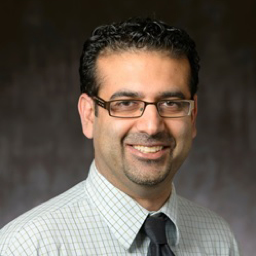
Source: Royal College of Physicians and Surgeons of Canada
Online registration is still available for the November 7 – 8 Simulation Summit
Simulation-based educators and police officers will come together this fall at a Winnipeg forum to help health care providers recognize and support victims of sexual trafficking.
Members of the Sexual Exploitation-Human Trafficking Investigation Unit of the Montreal Police Department are teaming up with medical educators from McGill University for a panel discussion at the 2019 Simulation Summit taking place Nov. 7-8 in Winnipeg. By sharing their insights, knowledge and experiences with simulation educators from across Canada and other countries, the panelists hope to equip more front-line professionals with the competencies and skills needed to make a difference in a victim’s life.
Panelist Dr. Farhan Bhanji, director of education at McGill’s Steinberg Centre for Simulation and Interactive Learning, says simulation education is effective in helping physicians and other professionals recognize the signs and support victims of human trafficking – as well as other types of abuse.
Dr. Bhanji says the simulation approach to medical education helps health care providers learn from an event and “think a little bit deeper, reflecting on that event with a facilitator…in ways that fundamentally change how we react.”
“The benefits of simulation-based education have led to an increase in its adoption and use in recent years,” he says.
As an interprofessional medical simulation education conference, the Simulation Summit offers networking, and both formal and informal learning opportunities for simulation educators. The theme of this year’s conference is “Simulation at the Forks: Diversity becomes Mainstream.”
“Good education changes what you do,” says Dr. Bhanji. “Really good education changes how you think. Great education fundamentally shapes who you are.”
“Simulation-based education has the potential to change who we are.”
Using simulation education to address sexual trafficking is “an opportunity to help inform health care providers and engage them with a problem that is really important but they may not recognize.”
Dr. Bhanji says it is easy for physicians and other health care providers to miss the signs of sex trafficking in patients “and it’s also possible that in certain cases, we might stigmatize these individuals and not meet their health care needs, which is even more of a problem.”
Victims’ voices will be shared during the panel discussion through video recording.
Dr. Bhanji says the Summit is an opportunity for physicians “to join with like-minded professionals and push the boundaries of what you are doing to advance health professions education.”
The conference can help all stakeholders “further develop a model that is readily transferable to other important social justice issues.”
October 25, 2019
